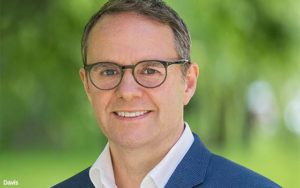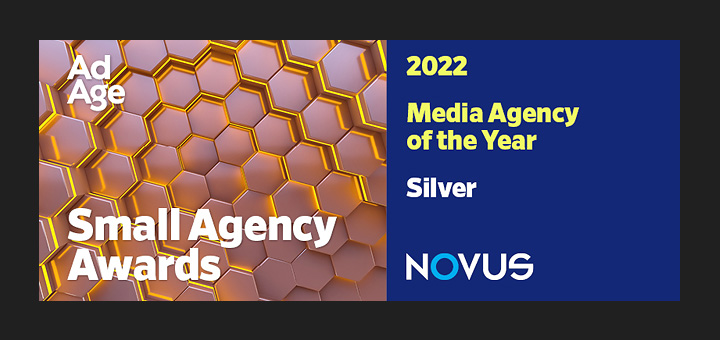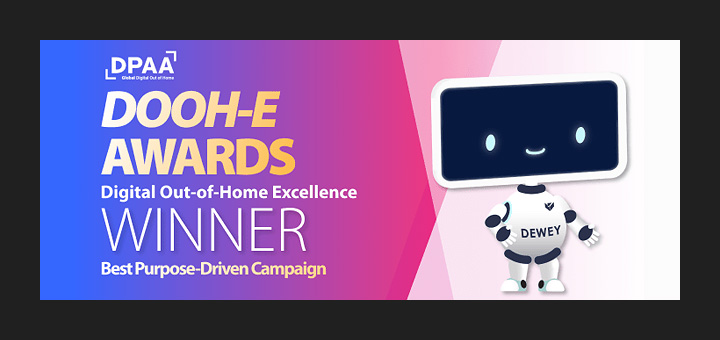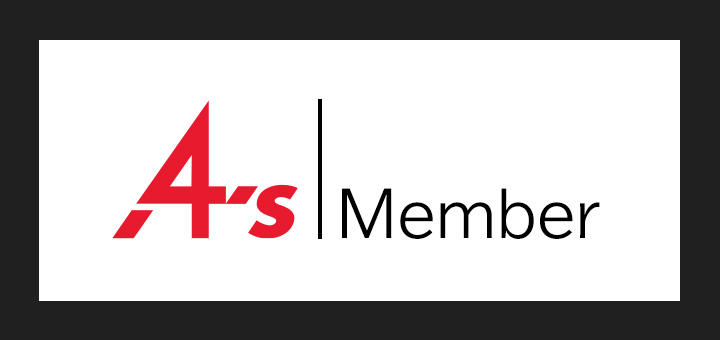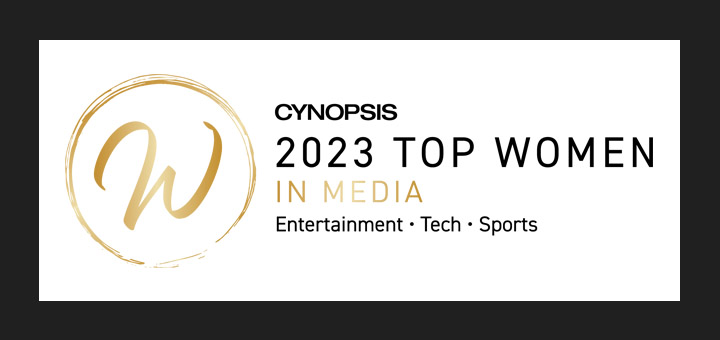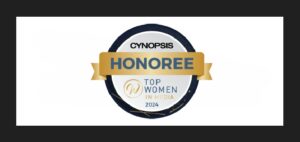5 Non-Intuitive Ways To Grow Your Marketing Career
How about instead of automatic entry to adulthood at 18, everyone is required to take courses and pass a test to get an “Adult License.”
As part of my Marketing Strategy Series, I’m talking with fellow marketing pros at the top of their game to give entrepreneurs and marketers an inside look at proven strategies you might also be able to leverage to grow your business or career. Today I had the pleasure of talking with Rob Davis.
Rob is a 30+ year veteran of the agency world, serving as President and Chief Marketing Officer at NOVUS.
A veteran of Starcom, he’s led such iconic brands as McDonald’s, Kellogg, Disney Themeparks, Airbnb, and Allstate — and he won Gold Lions and Effies for media effectiveness. Rob also became a local/ regional media expert planning and buying local media for P&G, and later highly localized media for Anthem Blue Cross and Airbnb.
Now with NOVUS, he’s evolved the agency with new service models, tools, and approaches and elevated the agency to win Silver for Media Agency of the Year in Ad Age’s independent media awards.
Well, truth be told, I accidentally applied for the wrong job, and then never left. In college, I had an interest in music, writing, and art — so when an ad agency internship opportunity popped up, I jumped at the chance.
In my youthful arrogance, however, I failed to research the position whatsoever and was surprised to learn it was not for the Creative department but rather for this thing called “Media.”
Sometimes the Fates have a plan though, as I was able to parlay my small “c” creativity into unique ways to interpret numbers, uncover insights, and design innovative media connections. The rest, as they say, is history.
Can you share a story about the funniest marketing mistake you made when you were first starting and what lesson you learned from that?
My first role in Media was to buy spot radio for the biggest radio market: Los Angeles. I spent weeks trying to negotiate the lowest prices I could muster for my client, and reached what seemed to be “the bottom” with each station. I then separately told each station rep verbally what “share” (percent of my client’s budget) they would end up with based on the pricing they offered.
One I intended to reward with 60% and another I essentially punished with only a 10% share. I then faxed (this was a long time ago) each in their respective order…except I accidentally swapped the cover pages and sent them both the order for their competitor!
I thought for sure I would get fired, but then they both called me. The low share station said, “I thought you were bluffing; I’ll drop our prices.” And the high share station said, “Wow, you are a man of your word. I’ll throw in bonus weight on top.” The lesson: sometimes honesty (combined with stupidity) actually pays.
Thank you for sharing that story! Are you able to identify a “tipping point” in your career when you started to see success? Did you start doing anything different? Are there takeaways or lessons that others can learn from that?
When I was newly promoted to Director, I took over an account that was notoriously difficult with a very demanding client. Everyone at the agency had been scrambling to respond to one proverbial fire drill after another. Rather than just continue to take orders, only to be yelled at for coming up short, I resolved to take a different approach.
After consulting with my boss, I developed a strategic framework that completely upended the approach the client had been directing. The stakes were high, and after I finished my presentation, I braced for a verbal dismantling. But quite the contrary: he loved it. He had been dying for someone to challenge him and to lead him.
We ended up securing a huge incremental fee and my career took off. It was through that experience that I learned to trust my gut, push for change, and take a principled stand.
What do you think makes your company stand out? Can you share a story?
I believe NOVUS offers a surprisingly rare combination of wicked smarts and genuine kindness. We’ve built some really clever, hyper-local tools and approaches, but sometimes what we do takes a backseat to how we do it.
For example, we recently won a large pitch against a much, much bigger and better-known agency. When we asked the client what put us over the top, they said, “Well your proposal was really smart, clear, and data-driven. But at the end of the day, we could tell you were just nice, normal people who we’d want to work with.”
None of us are able to achieve success without some help along the way. Is there a particular person you are grateful for who helped get you to where you are? Can you share a story about that?
Oh my gosh, the list is long (and impossible to recognize here everyone who has helped me), but to name a few:
- Andrew Swinand intimidated me with intellect but gave me the confidence to flex mine.
- Lisa Donohue taught me the art of accountability and capitalizing on opportunity.
- Renetta McCann showed me the difference between assertion and aggression.
- Rishad Tobaccowalla taught me the art of adaptive, persuasive presentation.
- Jack Klues modeled how to lead with authenticity and kindness.
- And the way-too-early-departed Sean Finnegan never hesitated to help me with a connection or advice.
Is there someone you consider to be your hero?
My heroes are my parents. They worked four jobs between them to put my sister and me through college, and they’ve dedicated their lives to helping people, from job placement for disabled people to substance and domestic abuse counseling.
They’re not saints — they both curse like sailors, for example — but they live their lives with generosity, service to others, and a dedication to fight for the underdogs.
Wonderful. Let’s now shift to the main part of our discussion. What advice would you give to other marketers to thrive and avoid burnout?
I worked for 26 years at one company. For the most part, they were very good to me: I learned a lot and made good friends. But it was often very hard, frustrating, and most days I woke up and had to “psyche” myself up for work.
Four years ago I took a leap into something new, and now I LOVE my job. It’s still hard, but I wake up each morning early because I can’t wait to get at it. So I guess my advice is, don’t settle for good in your career. Try for great.
There are hundreds of memorable marketing campaigns that have become part of the lexicon of our culture. What is your favorite marketing or branding campaign from history?
Well, I’m biased because I worked on it, but I’ll pick the Allstate campaign. Mayhem was fun to work on, but we also did a lesser-known side campaign around teen safe driving that helped secure new legislation that, in turn, curbed distracted driving and was credited with saving 11,000 lives per year.
Good one! If you could break down a very successful campaign into a “blueprint”, what would that blueprint look like?
It starts with a rich human truth that leads to a compelling and differentiating strategic framework, and then innovative tactics that all ladder to that strategy. All in service of a single, clear, measurable objective.
An example of this from my past was an idea my team had to drive increased usage among current customers for a snack brand. The simple but powerful human truth was that people snack as much out of boredom as they do hunger.
Rather than the traditional approach to associate with “hungry” moments around mealtimes and sporting events, all the media tactics revolved around intersecting with moments when people are bored — late night, middle of the workday, during long award shows, owning the #bored hashtag, etc.
Consumers have become more jaded and resistant to anything “salesy”. In your industry, where do you see the future of marketing going?
There has to be a value exchange. As marketers, we’re basically buying people’s attention — with a moment of information, inspiration, entertainment, or utility. I think that will fundamentally always be the case. The tactics will change.
For example, the idea of “zero party data” — data about themselves that consumers willingly turn over to marketers — will likely grow if we can prove we’ll give them higher value marketing in return.
What 5 things do you wish someone told you before you started?
1. It’s never too early to define your “brand.” For example, early on in my career, I established myself as someone who could deal with difficult clients. It led to all sorts of opportunities. It also can be kind of exhausting, but that’s another story.
2. Have your elevator speech. I was pushing for a promotion at one point and my boss said, “Ok, what compelling thing have you done that I can tell the CEO in an elevator ride?” I was stumped. So I went back to work to develop that “thing.”
3. Have an agenda when you meet a client. This one still makes me cringe. I had my first lunch with a bigwig client and he said, “Ok, whatcha’ got for me?” I froze. I thought it was just a social call. He was polite but embarrassingly had to explain how busy he was and that he expected a business idea or opportunity to come with lunch. Never made that mistake again.
4. Know the difference between assertion and aggression. You don’t have to yell and scream to be heard. Just have a clear POV and confidence in your beliefs and values.
5. Don’t sweat the small stuff (and know what’s small). On my first assignment, I was having trouble reconciling the monthly invoices. I thought I “lost” a few thousand dollars on a $20 million budget. I didn’t sleep for 3 days. I called my parents and asked if I could move back home and then went to my boss to resign. Her reply: “Don’t be ridiculous. You’ll find it next month. Go back to your desk.”
Can you share a few examples of marketing tools or marketing technology that you think can dramatically empower small business owners to become more effective marketers?
I’ll share one of ours that we call DeCoder. It helps marketers determine the optimal ZIP Codes in which to advertise, to help minimize waste.
We like to say, “geography is destiny” and whether you’re a national, regional, or local marketer, you can benefit from understanding how location impacts your business.
What books, podcasts, documentaries or other resources do you use to sharpen your marketing skills?
Rishad Tobacowala’s book Restoring the Soul of Business is a must. I also still get inspired by Wired. And because I worked on the McDonald’s account and know some of the people in it, the HBO documentary McMillions is a fascinating, cautionary tale. Oh, and Authority Magazine, of course.
We appreciate that! Thank you for sharing so many valuable insights with us today.
Author: Kage Spatz went from inner-city Teacher to Forbes-ft Entrepreneur who joined forces with fellow F500 Marketers to give your clients access to the same tech & talent used by the top .01 to grow sales on autopilot. Take your time back & create new revenue streams with DFY high-end growth services at Spacetwin.
